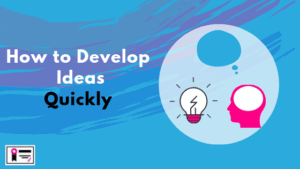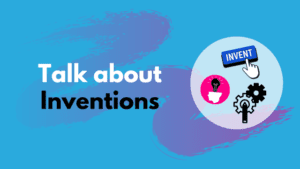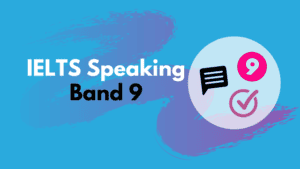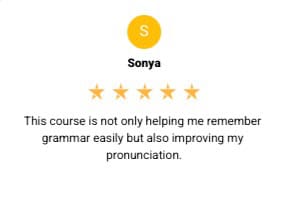50 Useful Expressions and Idioms with HAVE
In this article you can learn 50 expressions and idioms with ‘HAVE‘ that will build your vocabulary and improve your overall level of English.
Learning new words in English, is a bit like unwrapping an onion. As you open it and look deeper, you find lots of new layers, or new meanings.
The most commonly used words in English often have much deeper meanings. As your English level gets higher, it’s important that you start to discover the deeper meanings of these ‘simple’ words.
Take for example, the verb ‘to have‘, do you really know the difference meanings of this word, and how to use it?
Let’s find out.
Discover lots of Band 9 phrases using ‘GET‘
Table of Contents
Expressions with 'have' meaning possession
We can use ‘have’ to show possession of something or to identify things that are ours.
- I have a pen
- I have an iPhone
- I have a sister
- I have a dog
Notice that in American English, they tend to just say ‘have‘
I have a blue car
I don’t have a black car
However, in British English we often say ‘have got’
I’ve got a red pen
I haven’t got a blue pen
We can describe people’s characteristics or appearance using ‘have’
- I have a big nose
- I have blue eyes
- I’ve got ginger hair
- I haven’t got a beard
We can also use ‘have’ when describing people’s personality
To have a bad/nasty temper = To often get angry easily
She has such a nasty temper
To have a lovely manner = To speak calmly and politely
She has such a calm and lovely manner
We can also use ‘have’ to describe people’s behaviour
To have good manners = to be well-behaved
To have bad manners = To be rude and impolite
She has very good manners but her brother has really bad manners
Finally we use ‘have’ to identify sicknesses.
- I have a cold
- He has a cough
- She has a fever
- I have a stomachache
- He has a headache

Expressions with 'have' describing activities
We can use ‘to have’ to describe an activity. For example,
- Have a shower
- Have a wash
All of the following mean to rest or sleep for a short period of time.
- Have a rest
- Have a lie down
- Have a nap
- Have a siesta
- Have a rest
- Have a snooze
- Have a power nap
- Have 40 winks
Instead of using a verb, we can use ‘have + a + noun’ and this makes the expression softer or more inviting.
For example,
Have a look!
This sounds softer and more inviting than directly say ‘look!’
More examples include,
- Have a listen
- Have a look
- Have a smell
- Have a taste
- Have a bite
- Have a think
- Have a ponder
- Have a try
- Have a go
Idiomatic expressions with 'have'
To have time to kill = to have spare time
The other day I had time to kill so I got in touch with my mate Tim
To have time on your hands = to have free time
Tim has lots of time on his hands as he is on holiday now.
To have a bone to pick with someone = have a reason to disagree with, or be angry with, someone
I have a bone to pick with Tim because he chose the last film we went to see and it was utter rubbish
He doesn’t have a clue = He doesn’t know
Tim doesn’t have a clue when it comes to choosing a good film
To have a one track mind = to think about only one thing
All Tim thinks about is fast action and special effects – he’s got a one track mind.
To have the upper hand = to have an advantage over someone
Last time Tim chose the film we went to watch and it was rubbish, so this time I had the upper hand and I was going to choose.
To have money to burn = to have plenty of money to spend
Fortunately, Tim said he was going to pay, you know he has money to burn
To have a whale of a time = to enjoy oneself a lot
We had a whale of a time at the cinema, it was a great film
To have a blast = to enjoy oneself a lot
Tim had a blast and said he hadn’t laughed so much in ages
I hope you found this article useful. If you did, let me know in the comments below.
Thanks, Keith
Improve your Speaking Skills with this Free Course
Crack IELTS Speaking Part 1
Learn to Speak with Confidence in Part 1 of Your IELTS Test!
⭐️⭐️⭐️⭐️⭐️
‘It’s such a great course. I’ve learned so many usages for speaking part 1.’
Zu Htet






10 thoughts on “50 Useful Expressions and Idioms with HAVE”
Hi Keith,
Thank you for the lesson. I’ve found it very useful. I’ve been trying to get more information about usage the verb “have” , “have got” and idiomatic phrases with those. Surprisingly, even though “have” is a basic verb in English there are a plenty of expressions that change its meaning
Glad you liked it. Yes, we use lots of expressions with have. The same is also true of many simple verbs, like, take, come and so on.
Hello thanks for your nice guidance.i want to study selfishly because I haven’t possibly to get course
You mean ‘study on your own’, that’s fine. I hope my website and free resources can help you.
Hi Keith
A really useful little lesson. I had been teaching have and have got the day before with an intermediate adult student and this gave me some more useful practice – many thanks 🙂
Helen M
Helen4english.com
Glad it helped Helen….enjoy your teaching!
Well done !
What about verbs formed with “have+ noun” without “a” for instance : have lunch; have dinner; have breakfast ?
Good point, these are also good expressions.
Keith, I really appreciate all the material you have published. It is extremely relevant in terms of English teaching and learning as a foreign English. Keep doing that. You have made a good contribution. Thank you very much indeed.
Thanks for the comment Antonio, I really appreciate it.